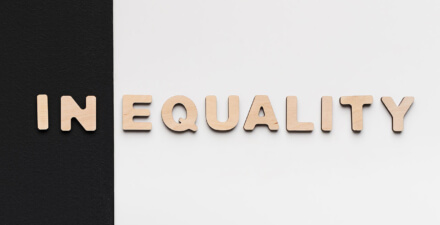How an individual or family experiences economic gains and losses can differ dramatically depending on where one lives—one’s geographic place in the United States. Economic mobility, economic growth, business dynamism, job opportunities, and other measures of economic prosperity can vary dramatically across different regions and communities. Equitable Growth seeks to better understand the reasons for these variations and explores what can be done to ensure that all Americans feel the benefits of economic growth regardless of where they call home.
Featured work
A place-based economic development strategy to foster rural U.S. prosperity
September 11, 2025
September 11, 2025
Federal and state governments can help solve the employment problems of people in distressed places to spur equitable growth
May 13, 2025
May 13, 2025
Green Energy Jobs in the US: What Are They, and Where Are They?
November 8, 2022
November 8, 2022
The inequitable consequences of ‘heat islands’ within the metropolitan areas of the United States and what to do about it
August 3, 2022
August 3, 2022
Is moving to a new place key to upward mobility for U.S. workers and their families?
February 14, 2022
February 14, 2022
Explore Content in Economics of Place229
Place-based climate policy in the United States
August 28, 2020
August 28, 2020
Revamping U.S. small business rescue programs amid the coronavirus recession
August 27, 2020
August 27, 2020
Disaggregated data on Asian Americans, Native Hawaiians, and Pacific Islanders is crucial amid the coronavirus pandemic
August 20, 2020
August 20, 2020
Addressing the U.S. racial economic mobility and inequality divides
August 18, 2020
August 18, 2020
Expert Focus: The intersection of community and inequality
August 12, 2020
August 12, 2020
Gaps in U.S. rural and urban economic growth widened in the post-Great Recession economy, with implications amid the coronavirus recession
August 6, 2020
August 6, 2020
Congress must act to help U.S. families facing an income crisis
July 29, 2020
July 29, 2020
Americans want green spending in federal coronavirus recession relief packages
July 7, 2020
July 7, 2020
New analysis shows state paid leave programs cushioned the blow of COVID-19, sparking important new questions
June 25, 2020
June 25, 2020
Expert Focus: Leading Black scholars on U.S. economic inequality and growth
June 22, 2020
June 22, 2020
Misvaluations in local property tax assessments cause the tax burden to fall more heavily on Black, Latinx homeowners
June 10, 2020
June 10, 2020
The Assessment Gap: Racial Inequalities in Property Taxation
June 10, 2020
June 10, 2020
Explore the Equitable Growth network of experts around the country and get answers to today's most pressing questions!
















